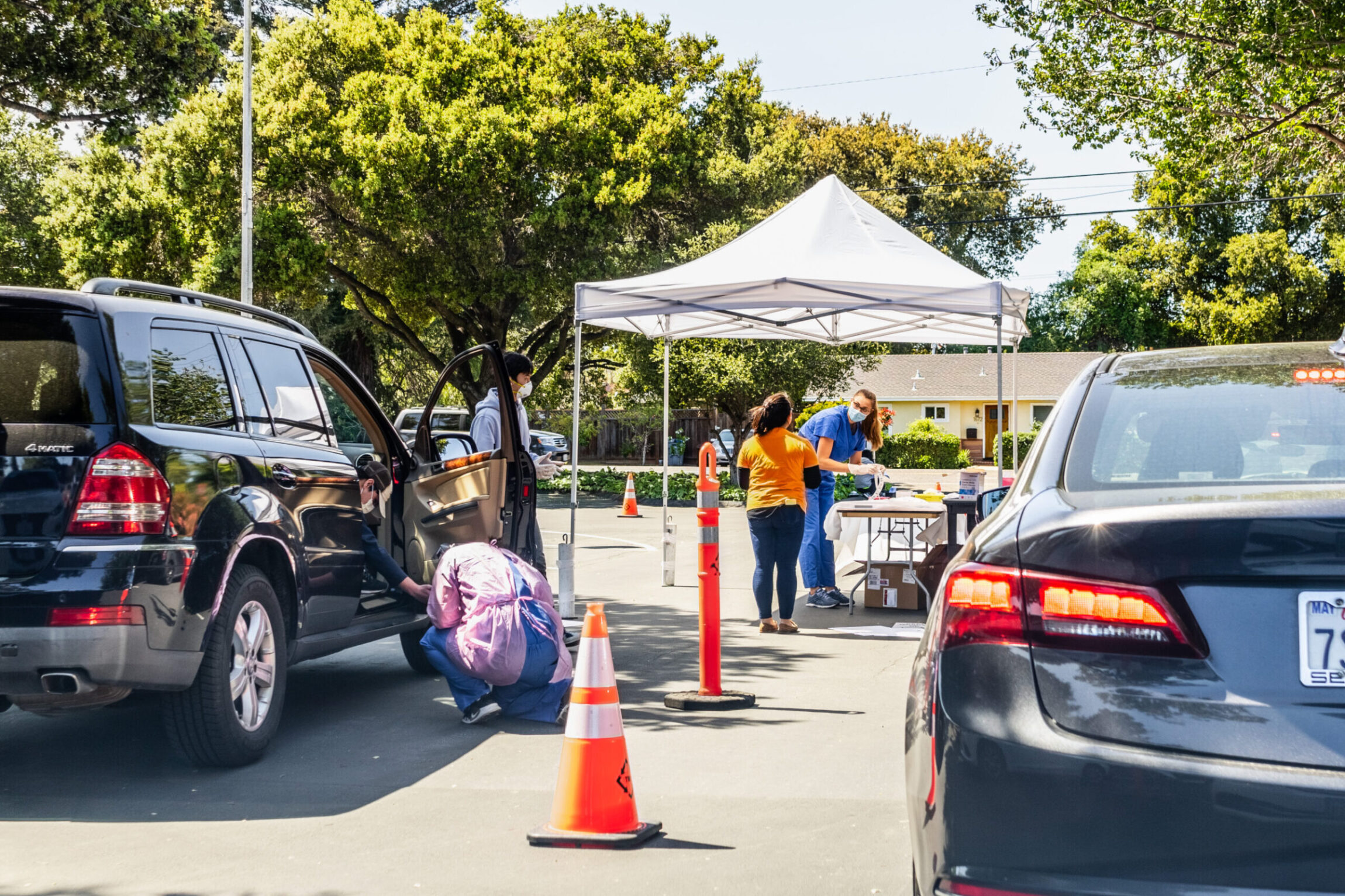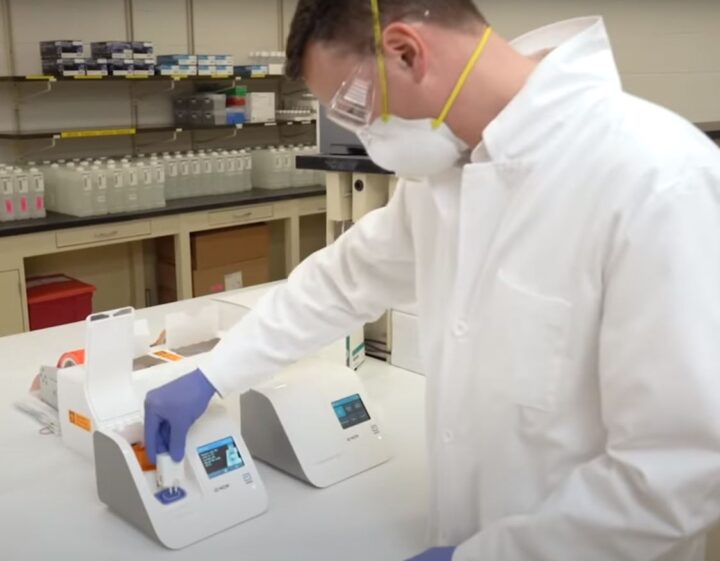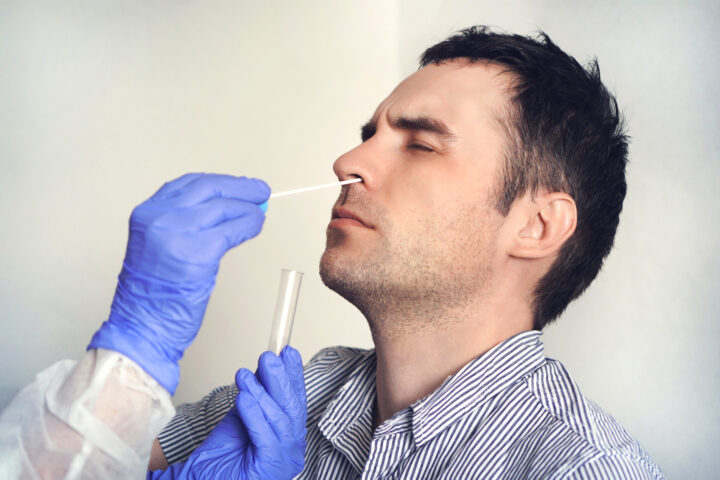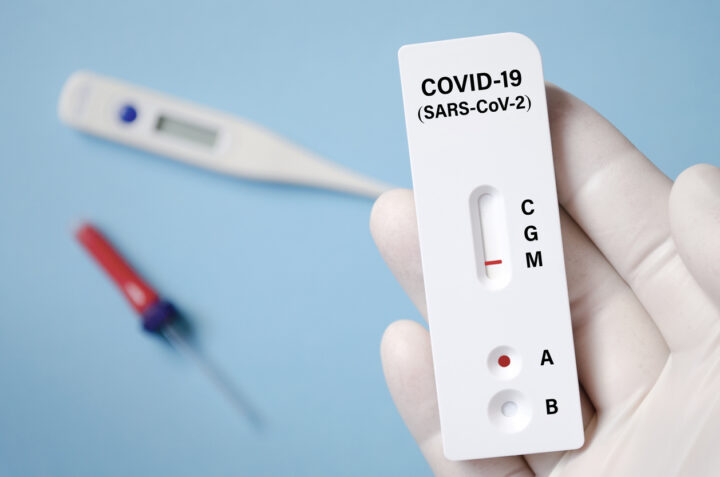All the alternative tests to temperature screening require a sample to be collected by swabbing for the virus or by taking a blood sample, although we note trials of rapid saliva based tests have recently started.
At the time of writing there are currently over 600 different COVID-19 tests available or in development. However, almost all will fall into one of the following 3 categories.
PCR (Polymerase Chain Reaction) TEST
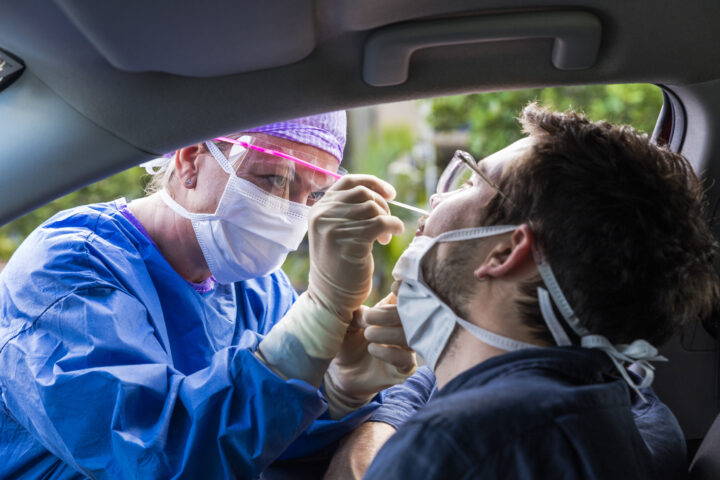
This is the most common test performed in the UK.
A sample of the virus is collected by swabbing back of the nose and this is a molecular test that looks for genetic material from the virus
The individual needs to be in the symptomatic stage for this test to work (as there needs to be sufficient concentration of the virus to be detected)
The benefit of this test is that it is 90-95% accurate* and it is the only test that it is universally recognised to have a high degree of accuracy.
The disadvantage of this test is that the sample has to be analysed in a laboratory, the reason for this being that to get a sufficient concentration to analyse accurately the virus’s genetic code is duplicated millions of times (a process called “amplification”). So unless there is a laboratory on site there is normally at least a couple of days delay before test results will be available.
* Most inaccuracies occur when the swab does not pick up enough of the virus to be detected. In a few cases the virus may only be present in places which can not be swabbed such as in the windpipe or lungs . When individuals self swab accuracy rates will be lower than stated above as collecting an adequate sample is very unpleasant.
Rapid PCR Test
There are also rapid PCR tests now available that use portable PCR (Point of Care) analysers that analyse one sample at a time, the benefit being that they can produce results within 30 minutes. These tests are not suitable for mass screening
Because these tests are new there is a lot of uncertainty about accuracy, manufacturers claiming 80-90% accuracy, independent test indicate the accuracy is less than 50%, some studies as low as 15%.
RAPID ANTIGEN TEST
With this test a sample is also collected by a nasal swab and the sample tested for antigens (foreign substances that induce an immune response in the body).
The sample is put on a plastic strip with antibodies cultivated from an animal that has had the virus and can give results in 15 minutes.
The problem is again these are not suitable for mass screening and accuracy is unproven. Manufacturers claim in 70%-85% accuracy, independent studies report that 30-50% is more realistic. But with all the tests these are so new there is insufficient data to draw any firm conclusions about their accuracy.
ANTIBODY TESTS
It was initially hoped that antibody testing would provide a rapid and accurate test that would show if someone currently has – or previously has had – the SARS-COVID-02 virus.
100’s of different antibody tests having been developed but all involve taking a blood sample which is tested to see if one or more of the IgA, IgG and IgM antibodies are present.
Unfortunately antibody testing has not delivered the hoped for benefits, there are a number of reasons for this.
Firstly it takes weeks after infection for the antibodies to appear.
Secondly if the test is taken at the “wrong” time the Antibodies being tested for don’t exist.
Thirdly, it is now believed, that quite a high number of individuals have the virus but don’t have the antibodies.
Finally, even if antibodies are detected, scientists are not sure if that means an individual will be immune.
For these reasons antibody tests are not considered a suitable test for detecting if someone is currently infected with the COVID-19.
